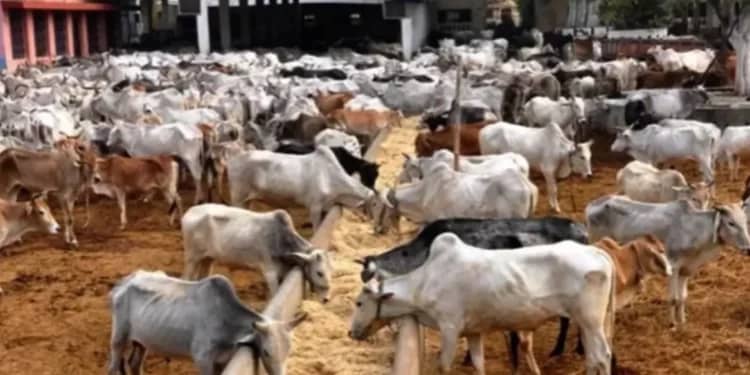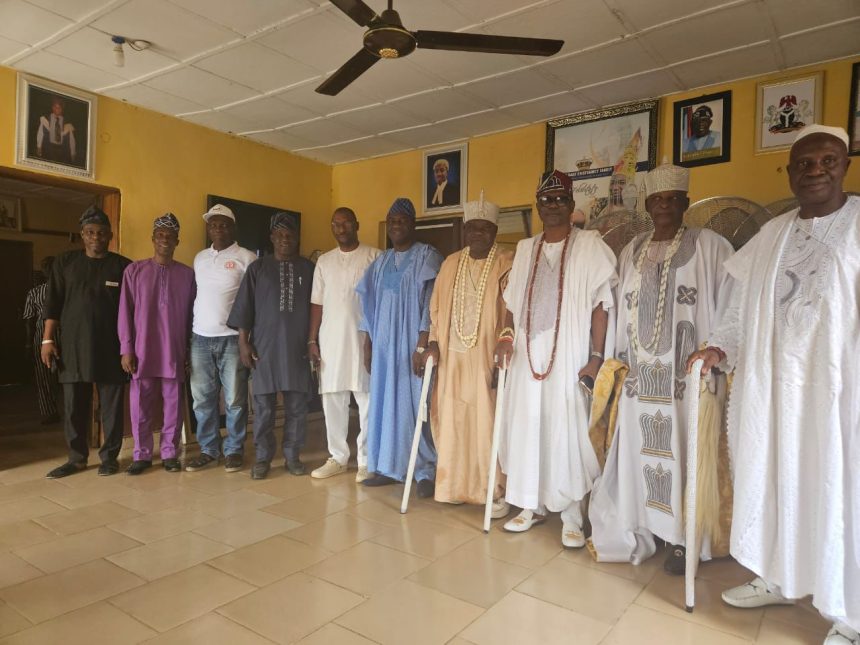From Taiye Joseph, Ilorin
For weeks, the usually vibrant Kara cattle markets in Kwara South Senatorial District, stood at the heart of a heated dispute that pit local government chairmen against traders, traditional rulers, and community groups.

What began as a unilateral decision to shut down the markets over security concerns spiraled into a tense standoff, with livelihoods and traditions caught in the middle.
On September 19, seven local government chairmen, acting under the Forum of Local Government Chairmen in Kwara South, announced the immediate closure of all Kara markets in the zone. Their justification was rooted in public safety.
“If we must choose between economic inconvenience and the safety of our people, we will always choose life,” declared Hadji Abdulrasheed Femi Yusuf, Chairman of Ifelodun Local Government, while unveiling the decision.
He insisted the markets would only reopen when a safe and conducive environment was guaranteed.
Beyond Kara markets, the joint order also placed restrictions on all produce markets, mandating them to close by 6:00 pm on market days.
But the announcement triggered swift backlash. The Kwara State chapter of the Miyetti Allah Cattle Breeders Association of Nigeria (MACBAN), accused the chairmen of ignoring critical stakeholders and undermining traders’ livelihoods.
“The closure was announced without proper consultation with traditional rulers, leaders, and traders. Many came to the Kara markets unaware of the decision. Such sudden action will cripple businesses and worsen the economic challenges of families,” said Alhaji Shehu Garba, the state MACBAN chairman.
The Ajase-Ipo Descendants Union (ADU), guided by the Olupo of Ajase-Ipo, Oba Ismail Yahaya Atoloye Muhammad, also stood firmly against the ban, describing it as “reckless and undemocratic.”
“Local Government Chairmen are not military administrators and must respect established institutions,” ADU’s National PRO, Hon. Balogun Monsuru Alabi, stated.
Yet, while condemning the order, the union also urged residents to remain vigilant and cooperative with security agencies to curb kidnapping and other threats in the area.
As tempers flared, all eyes turned to Ajase-Ipo, where the Olupo summoned a crucial peace meeting. For five hours, local government chairmen, monarchs, and other stakeholders deliberated inside his palace. By the end, consensus prevailed.
Hon. Benjamin Lanre Jolayemi, Chairman of Isin Local Government, announced the resolution: “We have agreed that all markets in Kwara South will now operate strictly between 6 am and 6 pm on market days. This decision restores order and guarantees safety.”
Traditional rulers echoed the need for balance between trade and peace. “Our markets must remain centres of trade and peace, not conflict. This step is for the collective good of our people,” Oba Alebiosu said on behalf of his colleagues.
The meeting brought together chairmen from Ifelodun, Irepodun, Isin, Ekiti, and Oke-Ero physically, while those from Offa and Oyun joined virtually. Monarchs such as the Olosi of Osi, Olupako of Share, Alofa of Ilofa, Olusin of Isanlu-Isin, and a representative of the Elerin of Erin-Ile also lent their weight to the final decision.
At the end of the standoff, the leaders expressed gratitude to Governor AbdulRahman AbdulRazaq, for backing efforts to safeguard lives and property.
The Kara market crisis in Kwara South may have begun with discord, but it ended with dialogue—a reminder that even in tense times, collaboration between elected officials and traditional rulers remains the strongest bridge between security and survival.






